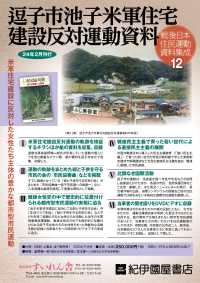Description
(Text)
Currently, most health care systems cannot afford all possible health care technologies and thus face serious resource allocation decisions. Economic evaluation represents one important tool to support decision-makers tackle this issue. The economic evaluation of infectious diseases is typically trickier than comparable analysis of other diseases. This book initially analyzes the differences between economic evaluation of infectious and non-infectious diseases and subsequently presents methodological advances for conducting the former, using real world examples. Guidance, especially, on the use of dynamic versus static models; on the assessment of indirect costs and the transferability of study results from one country to another country is given.
(Table of content)
Contents: Cost-effectiveness of screening for genital Chlamydia trachomatis infections - Cost-effectiveness of screening programs for Chlamydia trachomatis: a population based dynamic approach - Cost and effects of chlamydial screening programs: dynamic versus static modeling - The role of economic evaluation in vaccine decision making: focus on meningococcal group C conjugate vaccine - Economic evaluation of meningococcal serogroup C conjugate vaccination programs in The Netherlands and its impact on decision making - A decision chart for assessing and improving the transferability of economic evaluation results between countries.
(Author portrait)
The Author: Robert Welte graduated in 2004 from the University of Ulm with a Ph.D. in human biology with a focus on health economics. Currently, he works as a health economist at a pharmaceutical company in Munich. Previously, he conducted health economic research at the GSF-Institute of Health Economics and Health Care Management (2003-2004), at the University of Ulm (1998-1999 and 2002-2003) and at the Dutch National Institute of Public Health and the Environment (1999-2002). In the latter, he directly supported the Dutch Government in public health decisions. Since 1999, he has taught health economics at various national and international organizations and universities. He began graduate studies in Public Health at the University of Ulm in 1995, concentrating on Health Economics and Economics and graduated in 1997 with a Master degree. In addition, he has profound knowledge of biology and medicine gained via his studies at Wayne State University Medical School (USA) in 1993-1994 and the Department of Biology, University of Freiburg im Breisgau (Germany) in 1990-1993. He graduated from Wayne State University in 1994 with a Master of Science in Basic Medical Sciences. During his studies he was awarded several national and international grants.



![Tobias Pils. Untitled [Room]& MARFA Paintings : Ausstellungskatalog Josef Albers Museum, Bottrop (2017. 96 S. 30.5 cm)](../images/goods/ar/work/imgdatak/39609/3960981759.jpg)




